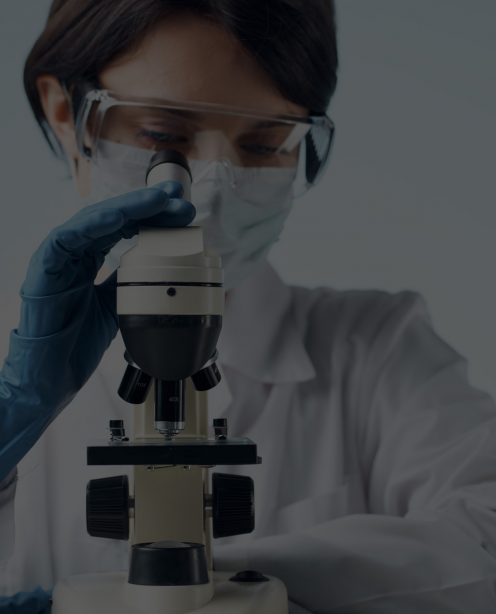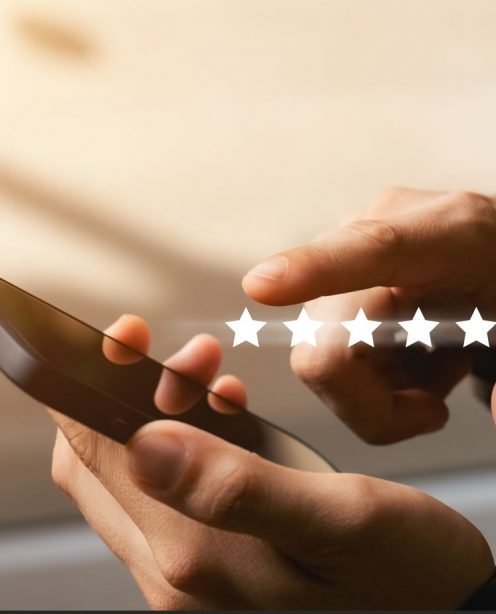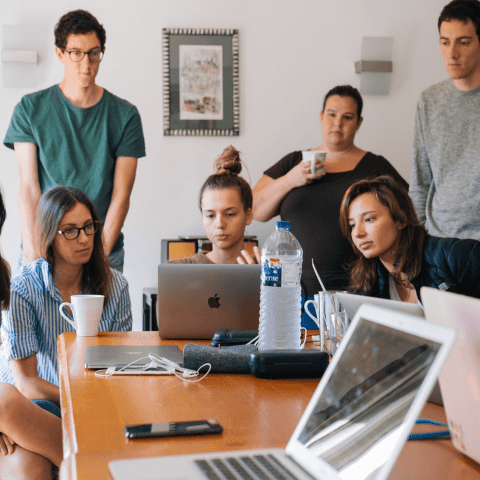Social Media
As always, social media is an important channel for engaging audiences - whether it’s about customer service or sharing exciting new content. These platforms will be even more important now, as organisations leverage their unparalleled capabilities for fostering digital interactions in real-time with users from all over the world.
Repurposing older content from the archives and re-sharing it on your social media accounts is often fruitful. The National Theatre throwbacks on Instagram are an excellent example of how you can put this in practice.
Do you have a library of video content? Now’s the time to make this easily accessible to everyone by uploading it to your platforms of choice and spreading the word. In a time when revenue from visits is likely to dwindle, YouTube can turn into a source of additional income. The Royal Institution, who we’ve recently started working with, have developed a fantastic YouTube library of great content for their 600K subscribers.
If you want to take engagement to the next level and you’ve got the content, why not run curated live sessions or performances: you can easily do this across YouTube, Facebook and IGTV (Instagram’s standalone video app), and it’s a great way to engage with your audience in real time while running it from a remote location or during a venue closure.
A great example is in Italy, where Castello di Rivoli director Carolyn Christov-Bakargiev is working to make the museum’s exhibitions accessible online. In Chicago,the Shedd Aquarium is taking their penguins out to meet the other animals. Make sure to prepare the content you want to share or talk about in advance, arrange a good set-up for your video and choose the social media platform that’s most popular with your specific target audience.
Webinars
Make your events digital by turning them into webinars. You can use software such as Zoom, Zoho or GoToMeeting to run these, and people can easily sign up online. If you already have an event planned and need to cancel it, you can run this as an alternative and let people join this way.
Use a service like sli.do to collect questions that can be moderated and voted on during the presentation, so you can safely run a Q&A session at the end. Remember that it’s still important to plan your event structure in advance, and definitely make sure you have visually engaging content to present during the webinar. You can also have fun with the length, maybe host more events but for shorter periods of time? Don’t forget to make these events available after they take place.
Make the most of your website
With fewer activities taking place offline, there’s more time to focus on your online presence and activity. Now’s the perfect time to write and share that blog that you’ve been meaning to write for a while, but kept putting off as other tasks took priority (we’ve all been there, we get it).
If you were planning an exhibition, can you showcase it instead on your website? Whether it’s by creating a proper virtual tour or uploading a new gallery with images and videos of the objects from the exhibition and an accompanying story to go with them, there’s various ways to achieve this. Best of all? These digital exhibitions can be open 24/7, so people can browse them at their own leisure, from the comfort of their own homes.
Some of our favourites (disclaimer: yes, they’re all organisations we work with) include:
- Mall Galleries’ digital exhibitions which often feature the artworks that will be on display, also available for art lovers to purchase online
- Explore Soane - the virtual tour of the Sir John Soane’s Museum
- The digital stories that can be explored via the Museum of Freemasonry website
- The St Albans Museums’ collections which can be browsed online
- The curated viewpoints created by The Photographers’ Gallery
- The MACE Archive which is a feature packed online collection with over 50k objects plus a collection system and Vimeo integration
- The Young Vic Theatre is launching a live stream of What’s Blocking You, a discussion in partnership with ArtsMind, on the 18th of March at 4pm
For even more digital exhibitions, have a look at this handy article by Dazed which lists quite a few good ones.
Chances are your website is built on a flexible, user-friendly CMS platform such as WordPress or Drupal, so you can also easily manage and add new content to it, even if you have to work from home. And if you get stuck, ask for help. Digital agencies may be increasingly working remotely at the moment but it’s business as usual, so you ought to be able to get additional support during this time.
Tell stories
Regardless of the medium, now’s the time to tell stories.
If you have education packs, you can update these and refloat them, turning them into a valuable resource for the increase in kids schooling from home, and adults who may take this time to learn about new topics.
We’ve mentioned running virtual tours before: another nice example is the Explore the Abbey Quarter virtual tour which was originally designed to help users plan their visit, but is equally usable to tell the story of Reading's historic Abbey Quarter remotely.
Don’t forget about internal engagement
While maintaining good communication and engagement with the outside world, and particularly with your audience, is important, making sure that you’re able to work and collaborate with your colleagues as efficiently as possible will make the whole process easier.
Having regular video calls can help, and you can use programmes such as Google Hangouts, Skype or Microsoft Teams for this. The Manager Tools podcast has some great tips for this, and has re-released a number of episodes related to remote working.
As many school and university classes are switching to some form of remote, online and distance learning (and people generally might be looking for entertainment or a culture fix), there’s also a ton of online resources that you can use to upskill wherever you’re based. We’ve listed below a few that you might find helpful:
- Culture Hive
- Smithsonian
- From Open Objects, a list of online portals to digitised collections, tours and exhibitions which includes a Custom Search Engine in Google that searches across ten of the best known collections
- MyLearning hosts learning resources from arts, cultural and heritage organisations from across the country, making it a really good hub for teachers, parents and carers
- Google has also published resources to enable access to online learning
- Some additional resources for people and organisations working in the theatre industry
We hope this blog has been useful in terms of sharing ideas for engaging with people during this new time of social distancing. If anyone has any other interesting resources they’d like to share please send them our way at [email protected].




